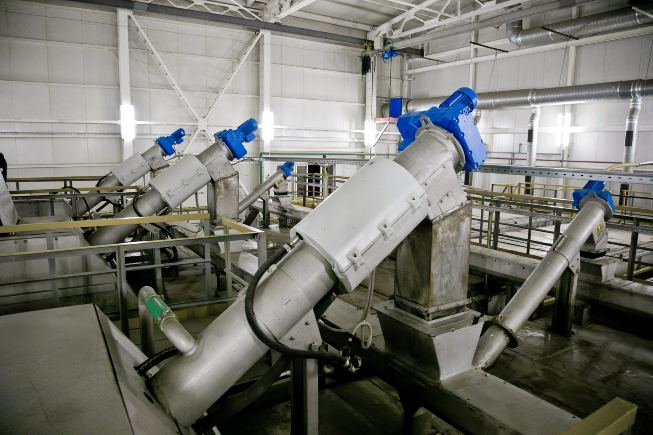Find out more about the process chemical wastewater treatment
For many businesses, wastewater treatment is a necessity. Governments have strict laws and regulations to prevent contaminated runoff flowing into the environment, and causing ecological harm.
Thankfully, there is a range of different chemical processes and technological solutions which make treating wastewater safe, efficient, and cost effective. Some chemical wastewater treatments can seem a bit complicated at first but with a little guidance, it's easy enough to grasp the fundamentals. To help you out, we've assembled the following guide to help explain the chemical treatment of wastewater.
Cleanawater is a market-leading supplier of water treatment systems. Find out more about our chemical control systems, and let us help solve your wastewater problems.
What is chemical treatment of wastewater?
'Chemical treatment' is an umbrella term that refers to a number of different ways of treating wastewater, and the chemicals used in wastewater treatment vary from method to method. For example, sodium hypochlorite, hydrochloric acid and magnesium hydroxide are used in different chemical treatments.
There are many specific ways of using chemicals to treat wastewater, including:
- Ion exchange
- Chemical stabilisation
- Chemical precipitation
- Chemical oxidation
What is ion exchange?
Hard water is water that has raised mineral content, which can present a number of issues and difficulties. A chemical treatment solution for hard water is ion exchange, which results in the water being softened (EG: lowering the number of minerals present in the water).
Positively charged ions are added to the mix by putting sodium chloride salt into the hard water. This causes a chemical reaction where sodium ions are released into the water, breaking up the calcium and magnesium ions that have caused the hardness of the water.
What is chemical oxidation?
In chemical oxidation, an oxidising agent is added to the wastewater. Electrons travel from the oxidant to the pollution, modifying the structure of pollutants in the water, and making them less harmful.
Advanced oxidation is a further step for removing organic compounds that might result as a byproduct of the chemical oxidation process. This is achieved through activated carbon absorption, or air/steam stripping.
What is chemical stabilisation?
This process involves oxidisation also, and is suited for sludge where biological growth is occurring. A big quantity of chlorine — or hydrogen peroxide — is added to the sludge. This slows down the biological growth, and also deodorises the substance. Then, the water can be taken out, and safely rerouted to the environment.
What is chemical precipitation?
Chemical precipitation is most widespread way to get rid of toxic metals that have dissolved into wastewater. A precipitation reagent is added, and the disparate particles take a solid form. These solids can then be filtered out. When choosing a precipitation reagent, people either go with calcium, or a sodium hydroxide water treatment process is used.
How do I find the right chemical treatment for my wastewater?

You don't need to be a chemical engineer to solve your wastewater problem — you just need to find the right team who can help.
At Cleanawater, we offer an assortment of different wastewater treatment systems, from oil water separators, to oil skimmers and chemical control. Moreover, we can design a specific system from scratch that suits your needs.
Contact us, tell us about your needs, and we'll get to work on an efficient, cost effective wastewater treatment system for your business.
What is a wastewater chemical control system?
We offer chemical control wastewater treatment systems are suitable for commercial and industrial enterprises. They can benefit businesses like car washes, workshops, and business which rely on industrial equipment.
- The chemical dosing system measures, controls, and regulates pH levels with the automatic injection of chemicals.
- Water disinfection systems allow you to safely store rainwater and recycled water. Available in both chemical treatment and ultraviolet units.
- Keep discharge at the right pH level with pH control systems, designed to automatically stop your company from breaching regulations.
All our systems can be installed quickly, bringing your company up to compliance with wastewater standards with a minimum of downtime. Plus, with our maintenance services, they'll keep working year after year.
At Cleanawater, we're passionate about providing wastewater solutions. We've got a range of different chemical control systems, and have the expertise and equipment to help treat wastewater in a variety of different industries.
Must Read
VapourGard: Your ultimate odour control solution
Control odours effectively and safely with CleanaWater's VapourGard system. Ideal for industries such as mining, landfill operations, recycling, and more, the VapourGard system uses lightweight partic ...
Read moreControl Odour with VapourGard
Control odours effectively and safely with CleanaWater's VapourGard system. Ideal for industries such as mining, landfill operations, recycling, and more, the VapourGard system uses lightweight partic ...
Read more